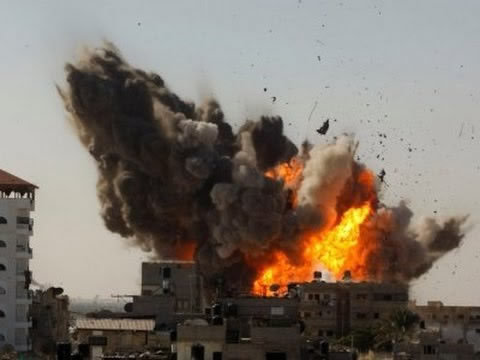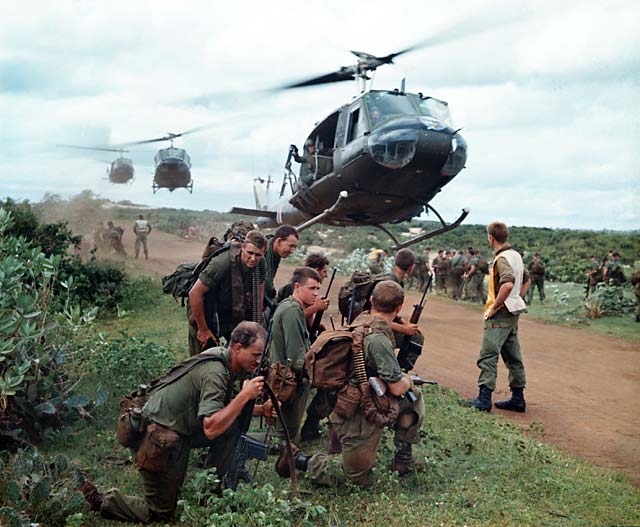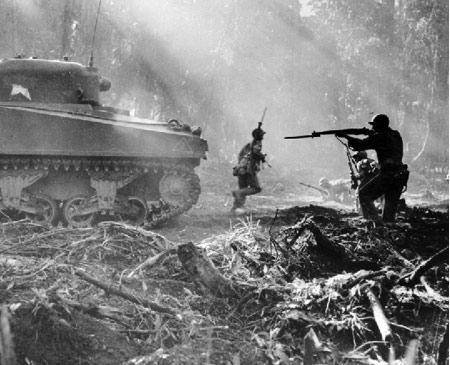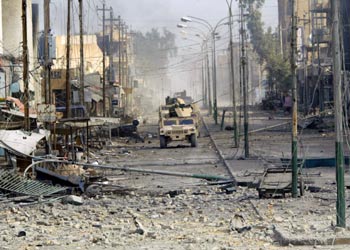 |
From an early age, innocently, I was searching for peace, truth and a fair life for all. Today, I am much older, though sadly I am still searching, hopelessly trying; however, it is as if attaining peace is harder than ever! |
|
To the ones who share humanity’s home with all
Our history has revealed that in no conflict or disagreement, has war ever been a valid solution; it has only created more hatred and distance between peoples!
A 2016 analysis on a Trump presidency by the Economist magazine => The Trump era => and below are aftershocks of his presidency by Chomsky
Look Where are Natural Resources - Then You Will See War and Violent Conflicts

Since before Trump’s election, the world has been busy following his bluster leading up to his presidency, and of course the aftershocks ever since.
Why worry about wars, more economic disasters, racism's progress, and the spectacle of our world slowly falling into the hands of ignorant bullies, when instead we can shake our heads at Trump’s twittering drivel, lashing out at perceived foes at home and abroad because they are not following his lead or doing his bidding. Have we forgotten the many wars and conflicts still wreaking havoc all around our home - Earth? Bloodshed and obliteration, making life unbearable for people, who are then forced to flee to the supposedly safe parts of Earth. And don't forget the destruction and devastation inflicted on our environment (land, sea and air):
South Sudan, Iraq, Somalia, Congo, Afghanistan, Syria, plus a few others… above all Palestine, which seems to win popularity in the media. The situation between Palestine and Israel has been ongoing since 1948, upon establishment of the state of Israel, meaning over half a century of cyclical conflicts and unending tension. After World War II, the western world established that new country right in the heart of the Muslim world; and, why was that? It has been an unrelenting problem since then, and there seems no solution in sight. Even though Israel worked out accommodations with Egypt and Jordan, they never could make peace with the people closest to its heart. If you look at maps of Palestine since 1948 (examine and consider, before judging this ugly dispute), you will see that for hundreds of years, Palestinians were living in the area peacefully with the Jews of the area.
Then, imagine a new country suddenly appearing in the midst of another, and decade after decade long-time residents of the area are slowly but surely forced out, to be replaced with foreigner settlers. This is a form of terrorism against those residents, and has resulted in conflict for over 66 years. Daily life is often literally a battle, and every few years yet another war results in the destruction of lives and property (1948, 1967, 1978, 1982, 1987, 1993, 2000, 2006, 2008 ...... ->https://www.un.org/unispal/timeline/ UNITED NATIONS - GAZA).
However, I have no doubt that Hamas has their own agenda in the area and that they have helped fuel recent military engagements. Hamas is focused on a religious agenda, with a fanatical Iranian government helping them, just to make it all worse. Nevertheless, my question is where do the people of Palestine go? Where is home when home is taken from them? Whoever follows this ugly war sees that borders are not the only problem; a lack of mutual respect is also a barrier to a two-state solution. Meanwhile, the price of war falls on the heads of the common people; as usual. We can feel sorry for the people in those conflicts, but they do not need our pity; they need solutions to end this situation, to be able to listen to the wind in peace and enjoy the world just like we do here. What is the way forward; how we can stop the suffering? I am sure every one of you can come up with arguments, and offer solutions ... share them please, and let’s end the suffering ....
So what did I find around the world? Besides the latest Israel-Gaza flare-up, I found 12 other wars and over 30 conflicts since 1948, not to mention the two ugly and nonsensical World Wars before that.
You know, I am puzzled that for a hundred years we have maintained a wonderful chain of improvement in many societies. Today we are at the peak of our discoveries in the educational, cosmological, and medical sciences, as well as the development of all kinds of modern technologies; yet our wars and conflicts persist dreadfully. Let’s ask ourselves “WHY”? Who benefits from having all this state of affairs? What is so important that the price is the lives of people, and the destruction of our earth?
 Examine all the wars around the world, consider how many of them are imposed on those nations, and what would be your actions against these Imposed Wars....The idea of war for profit is nothing new in the realm of human history and can be traced back centuries to where arms races, such as with navy ships, determined an empire’s reach. Imposed War or war for profit creates displaced people and refugees; it causes brain-drains from war zone areas.
Examine all the wars around the world, consider how many of them are imposed on those nations, and what would be your actions against these Imposed Wars....The idea of war for profit is nothing new in the realm of human history and can be traced back centuries to where arms races, such as with navy ships, determined an empire’s reach. Imposed War or war for profit creates displaced people and refugees; it causes brain-drains from war zone areas.
A helicopter sprays Agent Orange over a forest for the express purpose of destroying it
 War in any shape and form creates environmental disasters, and psychological traumas for people within war-zones, as well as for the soldiers who are always fighting a war that is not really theirs. Soldiers can soon begin to understand that the fighting they are engaged in is not about the defense of their own country.
War in any shape and form creates environmental disasters, and psychological traumas for people within war-zones, as well as for the soldiers who are always fighting a war that is not really theirs. Soldiers can soon begin to understand that the fighting they are engaged in is not about the defense of their own country.
Bombardment causes water, soil, and atmospheric pollution due to the huge amount of explosives, lead, and chemicals being released into the war-zones. They cause birth defects, diseases, long-term disabilities, and more on both humans and animals, not to mention the ruin of ecosystems in the area…
It is no secret that the defense industry profits most when a nation commits to a lengthy campaign overseas. For the profit-oriented, a wartime economy is just as good as a solid peacetime one, and shells and ammunition take precedence over the production of peacetime light bulbs or pencils. As Jean Kirkpatrick, the chief hawk-in-residence in the Reagan Administration, in 1979 said:
"Because the miseries of traditional life are familiar, they are bearable to ordinary people who, growing up in the society, learn to cope and therefore accept the fact that wealth, power, status and other resources favor an affluent few while traditional autocrats maintain the masses in misery. So therefore our lack of concern is quite proper; indeed, quite decent and moral because the lower orders feel no pain."
 However, Chomsky (1998) in Domestic Constituencies talked about the mind control of these governments in that:
However, Chomsky (1998) in Domestic Constituencies talked about the mind control of these governments in that:
"There is a "public arena" in which, in principle, individuals can participate in decisions that involve the general society: how public revenues are obtained and used, what foreign policy will be, etc.
In a world of nation-states, the public arena is primarily governmental, at various levels. Democracy functions insofar as individuals can participate meaningfully in the public arena, meanwhile running their own affairs, individually and collectively, without illegitimate interference by concentrations of power. Functioning democracy presupposes relative equality in access to resources--material, informational, and other--a truism as old as Aristotle. In theory, governments are instituted to serve their "domestic constituencies" and are to be subject to their will. A measure of functioning democracy, then, is the extent to which the theory approximates reality, and the "domestic constituencies" approximate the population."
Chomsky (1998) "argues that in the state-capitalist democracies, the public arena has been extended and enriched by long and bitter popular struggle. Meanwhile concentrated private power has labored to restrict it."
This struggle forms a good part of modern history. The most effective way to restrict democracy is to transfer decision-making from the public arena to unaccountable institutions. The population is kept happy and relaxed by encouraging self-centered fulfillments and deflecting interest from government activities through a large mass media. This creates a self-satisfied public that has no reason to reflect on where this comfort comes from, or question why there are so many conflicts or what is happening politically around the world. Did our governments help create problems half way around the world, thus making their involvements there rational? People’s knowledge about war and its politics is very limited and they know little about how they indirectly participate in these wars and how that is affecting their daily lives, their environment (air, land, water, farms, forests …), health, and economy.
This therefore gives more power to those in control, and less for the people. War affects us even if we are not living in the conflict zones (Africa, Iraq, Afghanistan……) and the aftermath is the lingering physical and psychological effects post-war.
 The only people who know what is really happening across the world are the ones who are involved in that war; soldiers, veterans, reporters, some intellectual readers, and of course the ones most involved: people who live in the conflict zones. The majority of the population, especially in the western world, are living daily with their bills and vacations. They don’t know how a person and his family deal with, for example, with a DU exposed member. Ordinary people won’t know how leukemia and other cancers among servicemen who took part in the 1991 Gulf War or in the more recent operations in the Balkans are continuing to suffer, and to battle with the system to prevent this happening again or to receive compensation.
The only people who know what is really happening across the world are the ones who are involved in that war; soldiers, veterans, reporters, some intellectual readers, and of course the ones most involved: people who live in the conflict zones. The majority of the population, especially in the western world, are living daily with their bills and vacations. They don’t know how a person and his family deal with, for example, with a DU exposed member. Ordinary people won’t know how leukemia and other cancers among servicemen who took part in the 1991 Gulf War or in the more recent operations in the Balkans are continuing to suffer, and to battle with the system to prevent this happening again or to receive compensation.
War and the military machine have many consequences. Obvious ones are the hundreds of thousands of people who are homeless, refugees, and /or hurt physically and emotionally. Less well known is the military's mishandling of toxins, both in battle zones and at its facilities. This has led to environmental disasters such as the defoliation of forests in Vietnam, the oil fires of Kuwait, and landscapes littered with unexploded weapons which pollute rivers, contaminate soil, and harm human health, local economies, and our ecosystems. Another example is the testing and manufacture of the nuclear bomb which has been responsible for some of the most profound and persistent environmental damage to life on earth. The massive amounts of radioactive waste that nuclear weapons production has generated, plus poor disposal and containment practices, have allowed radioactive waste to contaminate the soil and ground water surrounding nuclear sites, which has affected people near nuclear plants in every country. Repair and maintenance of many installations and equipment are dangerously inadequate. War and the use of more and more "advanced" weaponry have always had negative consequences on agriculture, infrastructure, public health provision, and social order. Such things as environmental and health issues, birth defects, post-thermometric stress disorder, economic difficulties, and racial hatred are the unfortunate by-products of conflicts that aren’t really about race, but about the self-interest, greed and power feeding the process of globalization; that modern manifestation of the ancient art of accumulating wealth through exploitation.
The wealthy and privileged control most wealth, resources and global decision-making. With new technologies in mass media and increases in its pervasiveness, the attention of people is distracted from what is really going on around them and in other parts of the world. People become uninterested in what is going on in Africa or the Middle East, but keep close tabs on what is going on in the lives of actors and ethically-flawed politicians.
The world's financial system and political machinery are controlled and operated by the world's top politicians and businessmen who meet in private outside the democratic arena, and the public do not know what is discussed or determined until it happens. The means of production are owned by a minority class and are used to turn out goods for sale with a view to profit. The military industry is a source of one of the biggest profits, especially when there is a war using up materials at a brisk pace. Thus, the incentive is for war, not against it, and people and the environment suffers for it.
Related Links:
Remembering the tragic aftermath of the Hiroshima bomb





 War in any shape and form creates environmental disasters, and psychological traumas for people within war-zones, as well as for the soldiers who are always fighting a war that is not really theirs. Soldiers can soon begin to understand that the fighting they are engaged in is not about the defense of their own country.
War in any shape and form creates environmental disasters, and psychological traumas for people within war-zones, as well as for the soldiers who are always fighting a war that is not really theirs. Soldiers can soon begin to understand that the fighting they are engaged in is not about the defense of their own country.
 The only people who know what is really happening across the world are the ones who are involved in that war; soldiers, veterans, reporters, some intellectual readers, and of course the ones most involved: people who live in the conflict zones. The majority of the population, especially in the western world, are living daily with their bills and vacations. They don’t know how a person and his family deal with, for example, with a DU exposed member. Ordinary people won’t know how leukemia and other cancers among servicemen who took part in the 1991 Gulf War or in the more recent operations in the Balkans are continuing to suffer, and to battle with the system to prevent this happening again or to receive compensation.
The only people who know what is really happening across the world are the ones who are involved in that war; soldiers, veterans, reporters, some intellectual readers, and of course the ones most involved: people who live in the conflict zones. The majority of the population, especially in the western world, are living daily with their bills and vacations. They don’t know how a person and his family deal with, for example, with a DU exposed member. Ordinary people won’t know how leukemia and other cancers among servicemen who took part in the 1991 Gulf War or in the more recent operations in the Balkans are continuing to suffer, and to battle with the system to prevent this happening again or to receive compensation. Winter Soldiers Testimony
Winter Soldiers Testimony